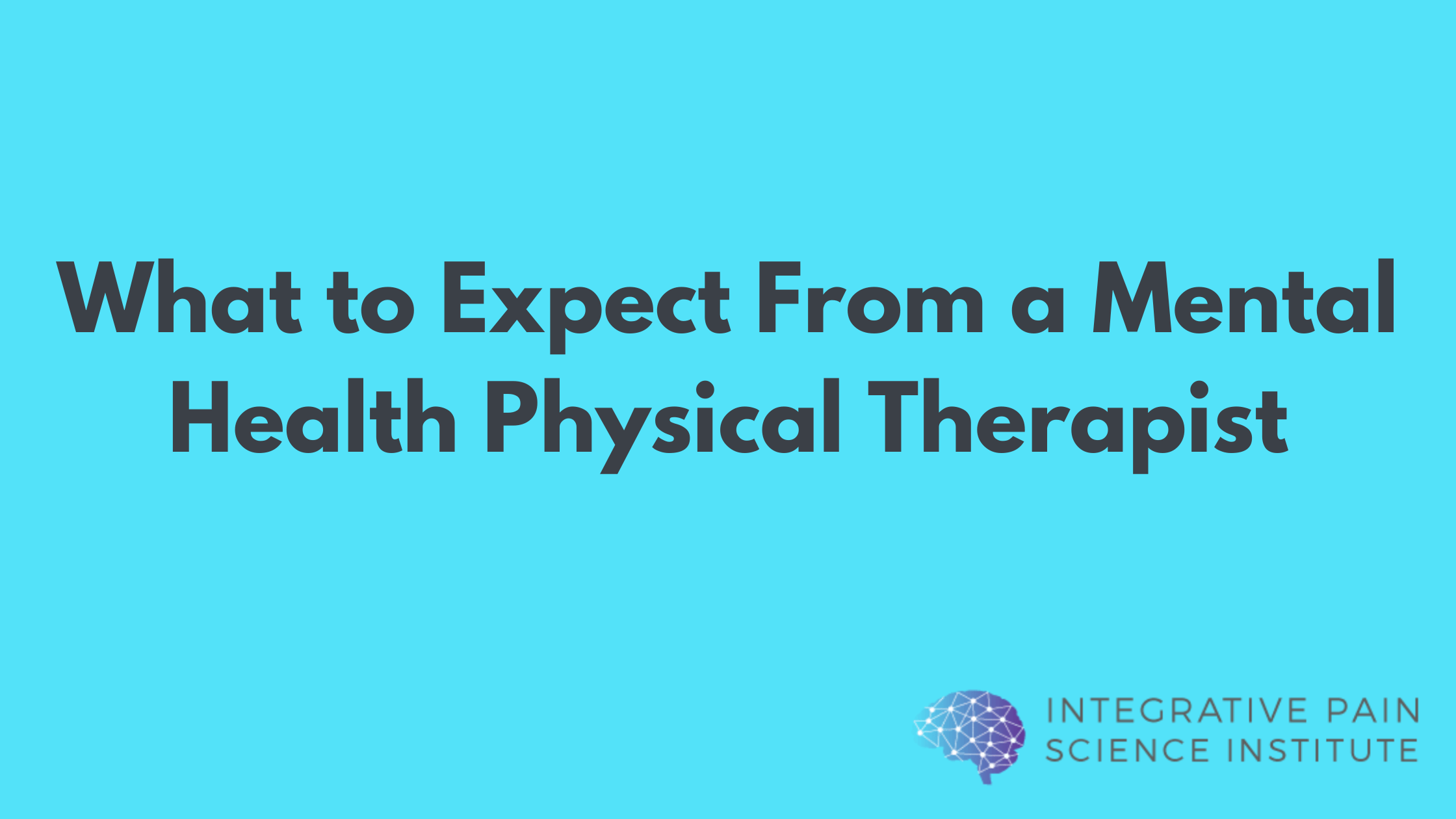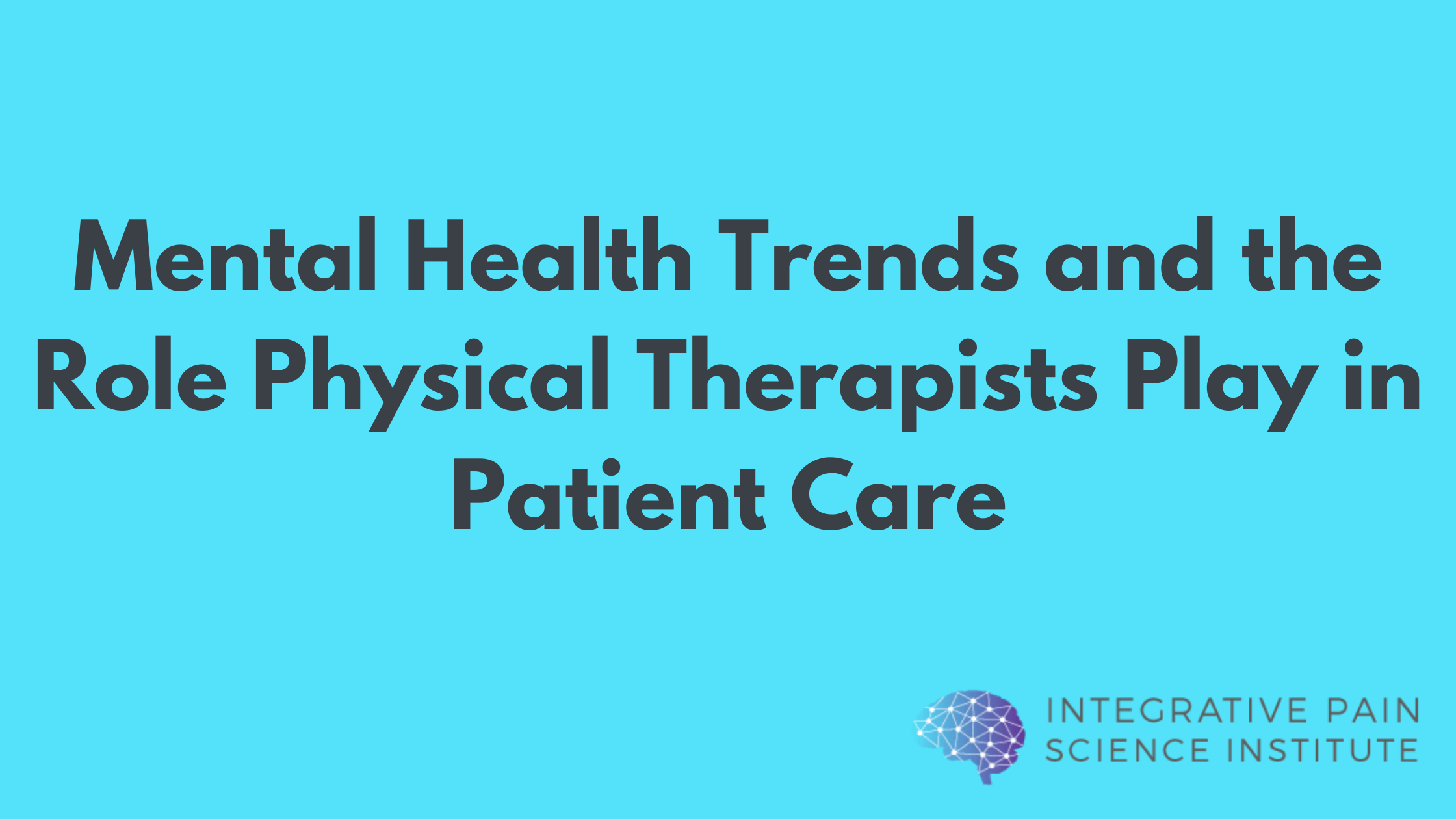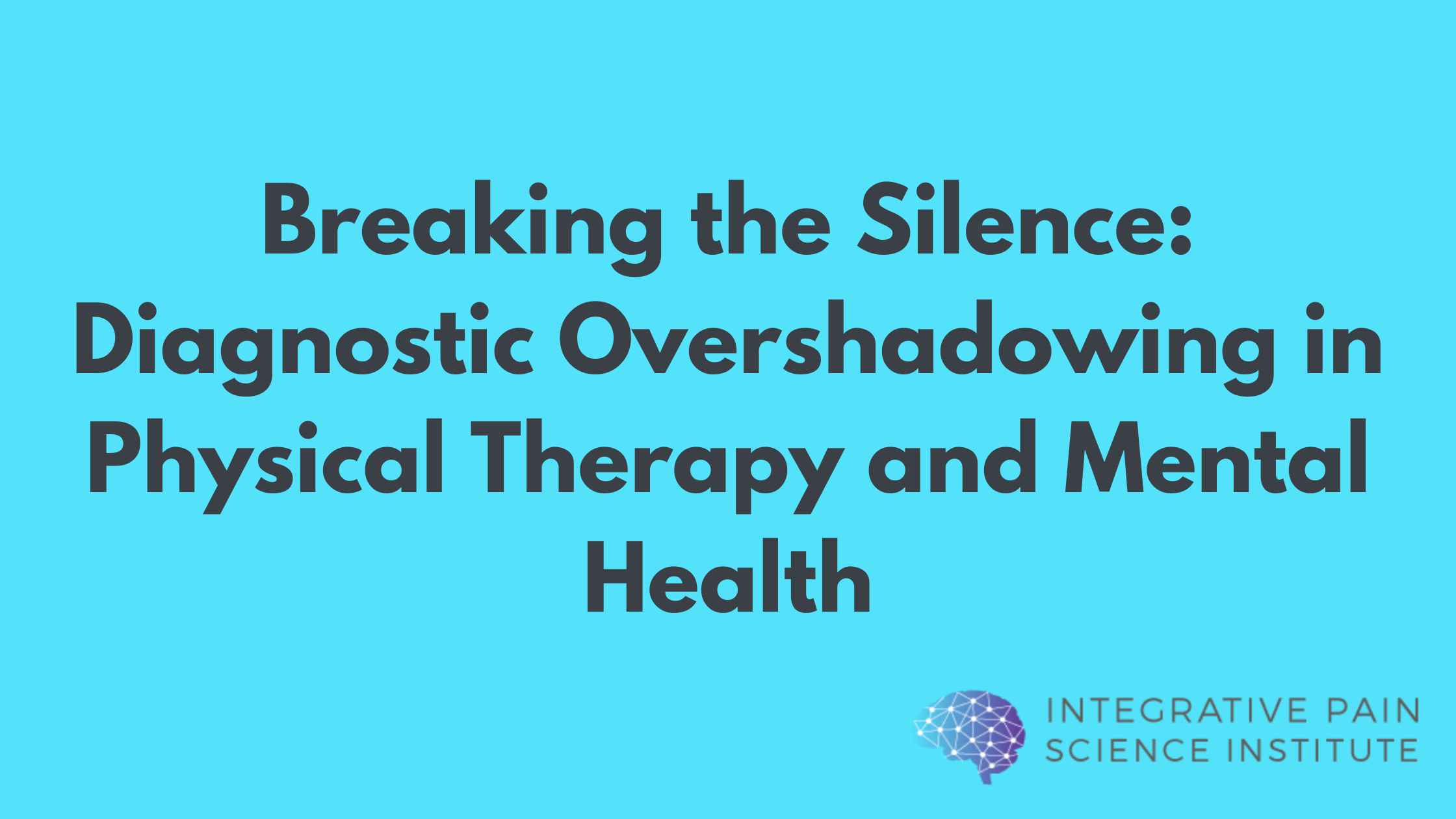Practice Development Tips for Physical Therapists to Add Mental Health Support to Their Practice
By Joe Tatta, PT, DPT
Physical therapists are increasingly looking for practice development tips to advance their careers. This blog post offers practical advice on how to develop mental health as a niche in your practice, collaborate effectively with mental health professionals, and build a referral network with other medical specialists.
For a comprehensive overview of the physical therapist’s role in mental health, refer to our earlier blog post, The Physical Therapist’s Role in Behavioral and Mental Health.
How to Add Mental Health Physical Therapy as a Practice Niche
Training and Certifications: The Foundation of Your Practice Development
PTs are aware that addressing psychological distress can improve physical therapy care. Before diving into the practical aspects of marketing and patient care, it’s essential to first build a solid foundation through appropriate skill and competence in the area of mental health physical therapy. This is best achieved through additional continuing education, training, and certifications. As a mental health physical therapist, obtaining specialized knowledge is critical for ensuring that you can provide safe and evidence-based care.
Pursuing additional training in this area is necessary. Physical therapy educational programs provide foundational knowledge related to psychosocial aspects of health and pain. You likely have a base of knowledge to build on but are aware that PT school did not provide real-world skills that can be useful in clinical practice to address mental health. A 2024 study in the Journal of Physiotherapy Theory and Practice found that PTs are looking for additional knowledge, assessment, and treatment skills specific to mental health problems.
Many continuing education providers offer courses on topics such as cognitive-behavioral skills, managing stress, motivational interviewing, mindfulness-based interventions, or trauma-informed care. These courses can deepen your understanding of how mental health intersects with physical therapy and equip you with practical tools to address patients’ mental health needs.
Consider enrolling in online training programs offered by reputable organizations. These often focus on delivering low-moderate intensity psychological approaches for depression, anxiety, traumatic stress/PTSD, and addiction. These programs are often self-paced but will have a live component where you receive guidance and support to develop skills essential for PTs working in mental health.
Build Your Online Presence in Mental Health Physical Therapy
Once you’ve completed your training and certifications, the next step is to establish your mental health niche online. This process involves updating your website, creating relevant content, and developing marketing materials that highlight your new expertise.
First, Update Your Website
Start by adding a dedicated page to your website that outlines your services related to mental health care and mental well-being. Include information on your education, training, certifications, the specific mental health conditions you address, and the benefits of integrating mental health support with physical therapy. Make sure this page is easy to navigate and visually aligned with the rest of your website.
Next, Create Some Content
Regularly publishing blog posts, podcasts, and patient success stories on topics related to mental health physical therapy can help establish you as an authority in this niche. Content ideas might include “How Mindfulness Enhances Physical Therapy Outcomes” or “The Role of CBT in Managing Chronic Pain.” These posts not only educate your audience but also improve your website’s SEO, making it easier for potential patients to find you online.
Make Some Marketing Materials
Update your brochures, business cards, and other marketing materials to reflect your new services as a mental health physical therapist. Be sure to include information about your mental health education or certifications and the benefits of a holistic approach to patient care. Additionally, consider creating downloadable resources like e-books or guides that patients can access via your website.
Start Posting on Social Media.
Use social media platforms to share your content, engage with your audience, and promote your mental health services. Short videos, infographics, and patient testimonials can be powerful tools for reaching a broader audience and driving traffic to your website. Here is an example of a post on my LinkedIn page about the PTs scope of practice in mental health care.
Practice Development Tips To Collaborate with Mental Health Professionals
Collaboration with mental health professionals is crucial for the practice development of your niche. Establishing a referral network not only helps your patients receive comprehensive care but also positions you as a valuable resource within the healthcare community. Mental health providers are often excited to hear about PTs specializing in mental health care.
Identify Potential Collaborators
Start by identifying mental health professionals in your area who share your commitment to integrative, whole-person care. These could include psychologists, psychiatrists, psychiatric nurse practitioners, counselors, and social workers. Look for professionals who specialize in areas relevant to your patient population, such as chronic pain, anxiety, depression, or trauma.
Build Relationships
Here’s a list of five ways to build relationships as a PT working in mental health.
-
Networking Events: Attend local healthcare networking events, conferences, and workshops to meet mental health professionals. Building relationships in person can lead to more meaningful collaborations and referrals.
-
Direct Outreach: Don’t hesitate to reach out directly to mental health professionals you’d like to work with. Send a personalized email or letter introducing yourself, your practice, and your interest in collaborative care. Highlight how your expertise in physical therapy complements their mental health services.
-
Joint Workshops and Seminars: Offer to co-host workshops or seminars with mental health professionals on topics that bridge physical and mental health, such as “Managing Chronic Pain Through Physical Therapy and CBT.” These events can enhance your credibility and foster collaboration.
-
Formalize Referral Agreements: Once you’ve established relationships with mental health professionals, formalize these collaborations with referral agreements or employment contracts. These agreements should outline the referral process, communication protocols, and any financial arrangements. Clear agreements help ensure that patients receive seamless, coordinated care.



